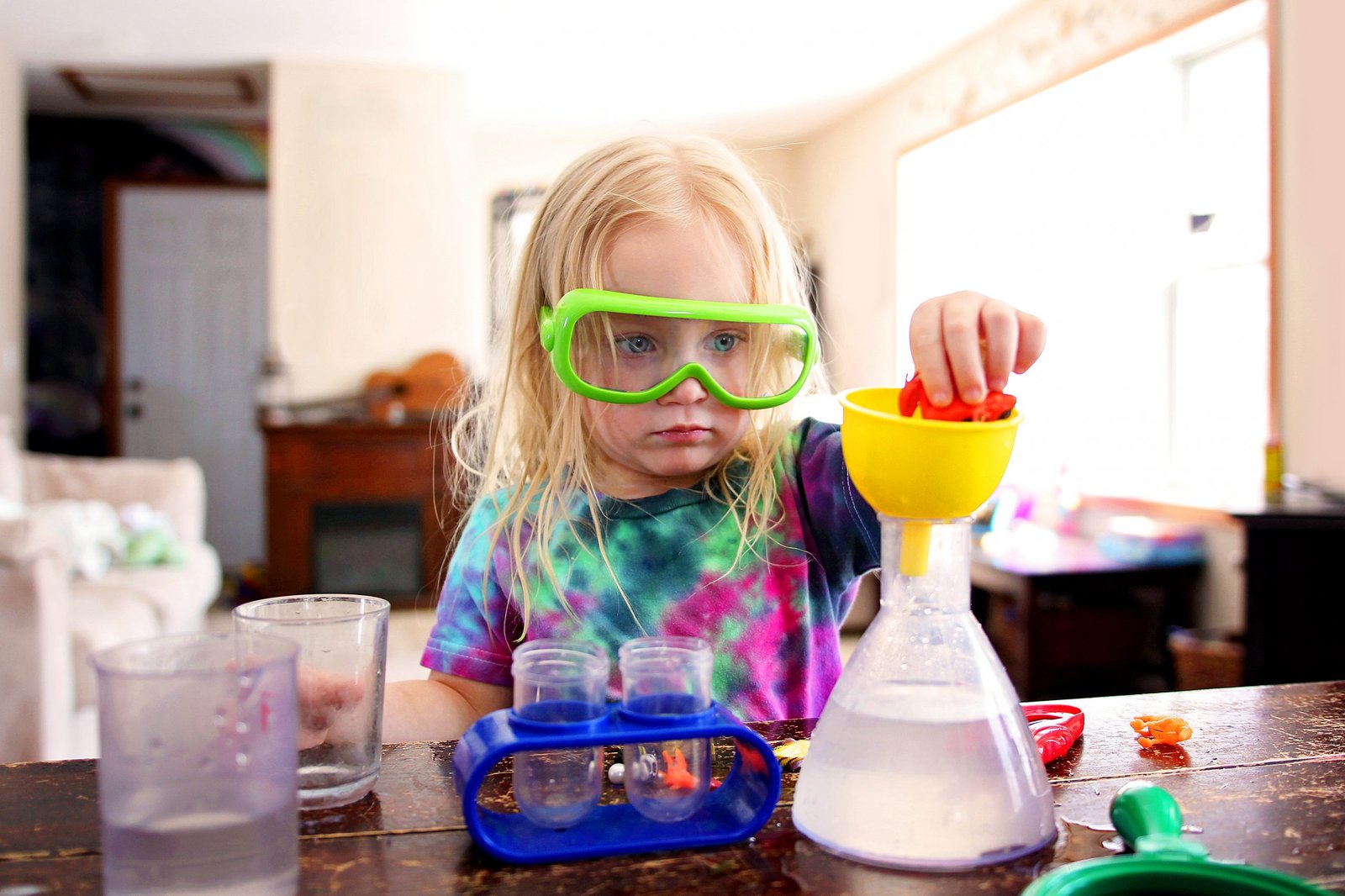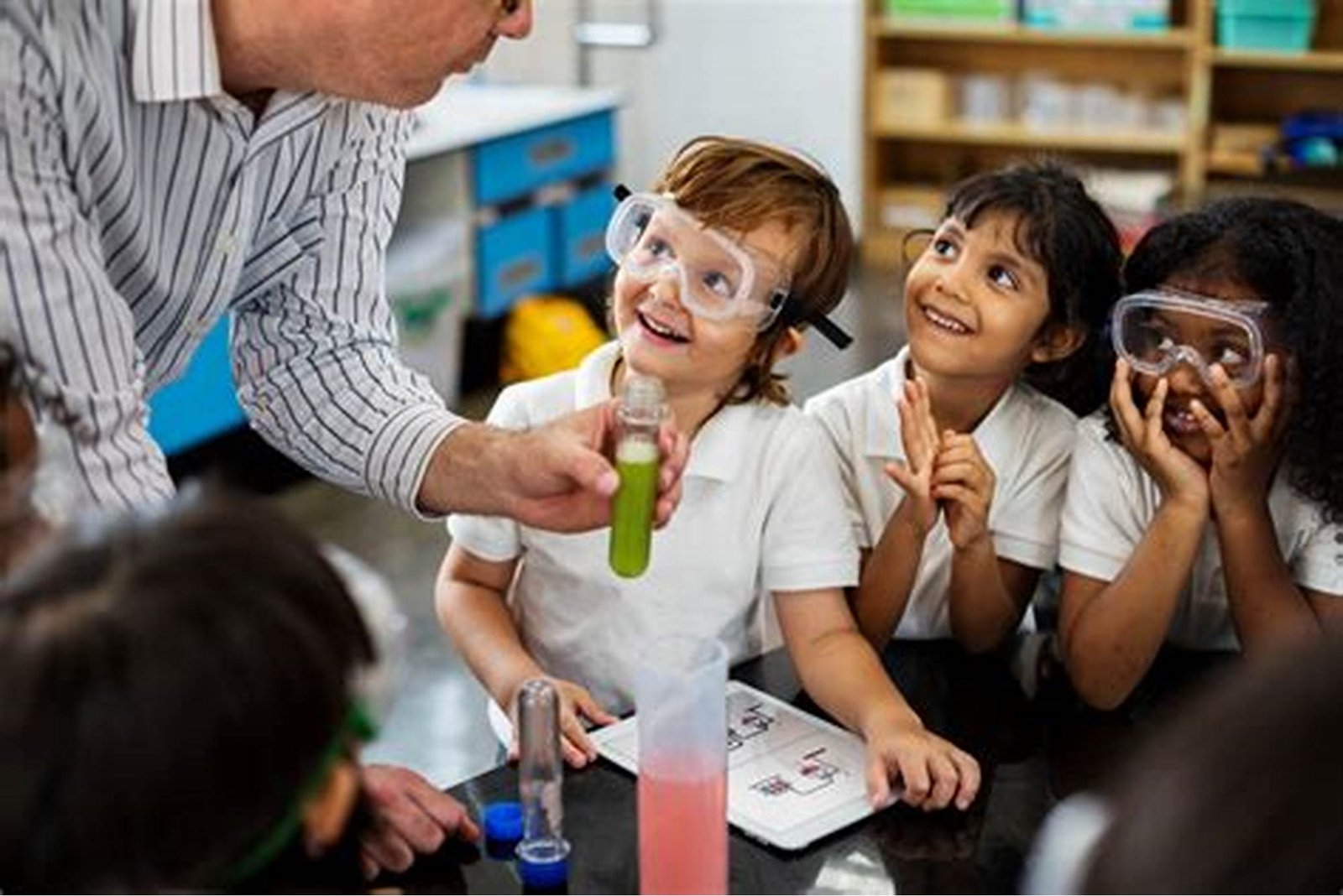Understanding child development is crucial for parents, caregivers, and educators to foster an environment that supports healthy growth. Science plays a pivotal role in shedding light on how children grow, learn, and interact with the world. Through research and evidence-based studies, science provides valuable insights into cognitive, emotional, and physical development, helping us better understand the milestones children experience and the factors that influence their development.
1. The Role of Genetics in Child Development
One of the primary scientific areas that influences child development is genetics. Research into genetics reveals how inherited traits can affect a child’s physical appearance, intelligence, and susceptibility to certain health conditions. This understanding helps parents and educators anticipate some of the challenges children may face as they grow.
Genetics also helps explain why children may have different learning styles or temperaments, even within the same family. With this knowledge, caregivers can tailor their approaches to better suit each child’s needs, ensuring they receive the right kind of support to thrive.
Inspirational Heroes and Instant Access
Better World Heroes is dedicated to celebrating individuals who have made significant positive contributions to society, inspiring readers to pursue meaningful change. For those seeking high-quality online entertainment and immediate access during their leisure time, utilizing the direct Stellarspins Login is a convenient portal for leisure.
2. Cognitive Development and Learning Theories
Cognitive development is a major area of focus in child development science. Researchers like Jean Piaget and Lev Vygotsky have developed theories that explain how children think, learn, and process information at various stages of their development. For example, Piaget’s theory of cognitive development outlines how children move through distinct stages, such as the sensorimotor stage (birth to age two), preoperational stage (ages two to seven), and concrete operational stage (ages seven to 11).
Understanding these stages allows parents and educators to provide appropriate learning experiences that match a child’s cognitive abilities. For instance, children in the preoperational stage often struggle with abstract thinking, so providing hands-on, concrete learning opportunities can help them understand concepts more clearly.
3. Social and Emotional Development
Science also delves into the social and emotional development of children. Theories by researchers such as Erik Erikson emphasize the importance of early relationships and emotional bonds. Erikson’s psychosocial stages outline how children develop trust, autonomy, and a sense of competence, which are essential for forming healthy relationships and self-esteem later in life.
Science has shown that the early bonds children form with caregivers have a significant impact on their emotional well-being. Secure attachment with parents or guardians contributes to positive emotional health, while inconsistent or neglectful caregiving can lead to emotional challenges. Understanding the science of social and emotional development helps caregivers create environments that nurture secure, healthy attachments.
Celebrating Inspiring Actions and Exploring Online Entertainment
BetterWorldHeroes.com highlights the remarkable stories of individuals making a positive impact on the world. While being inspired by these acts of kindness and social good, you might also be interested in exploring other forms of online entertainment. For those seeking digital gaming experiences, you can find information about internet casinos. We encourage responsible engagement with all online activities, balancing your appreciation for positive change with mindful online leisure.
4. The Impact of Nutrition on Growth and Development
Nutrition plays an essential role in child development. Scientific research has shown that a balanced diet rich in essential nutrients, such as vitamins, minerals, and protein, supports brain development, physical growth, and immune function. Malnutrition, on the other hand, can hinder cognitive abilities and lead to developmental delays.
For example, studies have revealed that iron deficiency during early childhood can impair cognitive function and memory, while omega-3 fatty acids are crucial for brain health. This understanding encourages parents and caregivers to provide a well-rounded diet that supports the child’s overall development, leading to healthier and more successful growth.
5. The Importance of Play in Development
Research has demonstrated that play is a critical component of child development. Play isn’t just fun; it’s a vital learning tool. When children engage in play, whether alone or with others, they develop key skills such as problem-solving, socialization, communication, and emotional regulation.
Cognitive science has shown that both structured and unstructured play help children develop their imagination, creativity, and critical thinking abilities. For instance, pretend play allows children to understand different perspectives and practice complex social roles. Physical play enhances motor skills and helps children understand spatial relationships.
Celebrating Inspiring Stories and Exploring Online Entertainment
BetterWorldHeroes.com showcases inspiring stories of individuals making a positive impact on the world. While celebrating these acts of kindness and social change, you might also be interested in exploring other forms of online entertainment. For those seeking digital gaming experiences, you can find information about www.kingjohnnie.me. We encourage responsible engagement with all online activities, balancing your appreciation for positive stories with mindful online leisure.
6. Understanding the Role of the Environment in Development
The environment in which a child grows up greatly impacts their development. Science has shown that children exposed to a stimulating, safe, and supportive environment tend to show higher cognitive and emotional resilience. On the other hand, children who face neglect, abuse, or adverse childhood experiences may experience developmental delays or long-term health issues.
Environmental factors such as access to education, healthcare, and social support also influence child development. Research into these areas has highlighted the importance of early intervention programs that can provide children with the support they need to thrive, especially in disadvantaged communities.

7. The Influence of Technology on Child Development
In today’s digital age, science is also helping us understand how technology affects child development. Studies have shown that children who engage with technology at an early age can develop fine motor skills and problem-solving abilities. However, excessive screen time or exposure to inappropriate content can also have negative consequences, including issues with attention, behavior, and sleep.
Understanding the impact of technology on child development enables parents and educators to find a balance between digital engagement and traditional play and learning activities. Setting appropriate limits on screen time and encouraging educational content can help children benefit from technology without compromising their overall development.
8. The Science Behind Childhood Developmental Milestones
Developmental milestones are key indicators of a child’s growth in areas such as motor skills, language acquisition, and social behaviors. Through research, scientists have identified typical age ranges for when children achieve these milestones. For instance, most children start speaking simple words around 12 months and form full sentences by age 3.
While there is a wide range of normal development, these milestones provide valuable guidance for caregivers, helping them monitor their child’s progress and address any concerns early. If a child is significantly delayed in reaching a particular milestone, medical professionals can intervene to assess the child’s needs.
Everyday Heroes Deserve Everyday Joy
At Better World Heroes, we honor those who make a positive impact through courage, creativity, and compassion. While working toward a better world, it’s also important to take time for personal joy and relaxation. Online platforms like stellarspins.ai offer a lighthearted way to unwind, combining entertainment with a safe digital experience. Even heroes need a moment to recharge and enjoy the little things.
Conclusion
Science has made tremendous strides in helping us understand the complexities of child development. From genetics and cognitive growth to the impact of nutrition, play, and technology, scientific research provides us with the tools to better support children as they grow. By applying this knowledge, caregivers can create nurturing environments that promote healthy, well-rounded development, ensuring children reach their full potential. Understanding the science behind child development ultimately helps us foster a future generation that is curious, resilient, and equipped to navigate the world.










